Quem Somos?
The Group Objectives and Research Questions
The Brazil-China Climate Change Economics Group´s (GBCMC) objective is to identify and investigate the economic opportunities brought in by the climate change that can help foster a common agenda of interests, foment collaboration and cooperation and contribute to Brazil and China´s economic and social development. It seeks to develop a policy agenda to inform national and subnational governments and private entities in the search for strategies and policies that aim to amplify and optimize those opportunities. The Group is interested in exploring that agenda from the economic, technological, geopolitical and business perspectives.
More specifically, the Group is interested in answering the following research questions:
I. How can the economics of climate change help develop new business models, markets and solutions of high impact that accelerate economic and social development in Brazil?
II. How can Brazil better exploit its unique natural conditions as a tool of economic and social development?
III. What are the priority areas for collaboration and cooperation between Brazil and China?
IV. How Brazil and China can best align, collaborate and cooperate in the climate change agenda?
V. How to optimize the benefits of the collaboration and cooperation between Brazil and China?
VI. What are the implications of the collaboration and cooperation between Brazil and China on climate change?
Products and services
– Academic studies;
– Reports dedicated to specific topics on demand;
– Workshops and other professional events;
– Monthly letter;
– Academic exchanges
Partnerships
Potential to work with other groups and institutions, national and foreign, notably from China.
Members
The GBCMC is composed of a team of researchers that brings together expertise in the areas of Economics, Finance, Environment, International Relations, Geopolitics and Public and Private International Law, with an in-depth understanding of the internal politics and international insertion of Brazil and China. The Group includes people with solid academic background, but also with extensive international and public policy experience and an interface in Economics and Business.
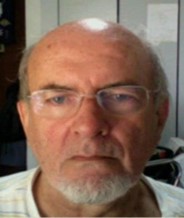
Joaquim Pinto de Andrade
Holds a degree in Economics from the Federal University of Rio Grande do Sul (1968), a MSc in Economics from Fundação Getúlio Vargas (1971) and a Ph.D. in Economics from Harvard University (1980). Professor at University of Brasilia from 1977-2021. He was Dean of Graduate Studies at University of Brasilia 1990-1991. Visiting Scholar at Tokyo University (1982), Stanford University, (Spring, 1994), Harvard University (Winter, 1994) and Scholar of the Institute of Development Studies, Japan 2000. His mainly interests are on Macroeconomics and Monetary Economics, Dynamic Stochastic General Equilibrium Models – DSGE. Recently Behavioral Macroeconomics and Inequality are topics of special interest. He oriented more than 50 PhD thesis. Some papers worth mentioning are ANDRADE, J. P. ; DIVINO, J. A. C. A. Monetary Policy of the Bank of Japan, Inflation Target versus Exchange Rate Target. Japan and the World Economy, 2005. ANDRADE, J. P.; SILVA, M. L. F. ; TORRANCE, T. S. Reflections on the Perspectives of the Global Economy from the Point of View of Emerging Economies. Journal of Evolutionary Economics, 2000. Finally, he was president of ANPEC and editor in chief of the journal EconomiA, sponsored by ANPEC and edited by Elsevier, one of the more important in Brazil and the only one that is international.
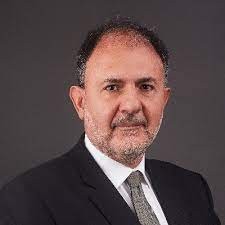
Jorge Arbache
Is Vice President for Private Sector at the Development Bank of Latin America – CAF and professor of economics at the University of Brasília (UnB). He has served as Deputy Minister for International Affairs at the Ministry of Planning and Budget of Brazil; Chief Economist at the Ministry of Planning and Budget; Executive Secretary of the Brazil-China Investment Fund; Senior Economic Advisor at the Brazilian Development Bank – BNDES; Senior Economist at the World Bank; Economist at the International Labor Organization (ILO); member of the board of directors of large companies and banks; and member of high profile business and policy committees. Arbache has published regularly on development economics and related matters, and on the Brazil-China and Latin America-China economic relations. He is op-ed business columnist at the Jornal Valor Econômico and Member of the Advisory Committee of the Brazil-China Business Council. Jorge holds a PhD in Economics from the University of Kent, UK. He participates in the Group in his capacity as professor of the UnB.
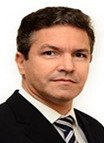
Jose Angelo Divino
He holds a Ph.D. in Economics from Boston University and his research interests are monetary policy, macroeconomics, and applied econometrics. Is Professor of Economics in the Graduate Program of Economics at the Catholic University of Brasilia, Brazil. Since 2012, he is also the Director of Graduate Studies. Currently, he is senior research fellow of the National Council for Scientific and Technological Development (CNPq), consultant and Site Director of the University of Illinois at Chicago and Editor of the EconomiA and the Brazilian Journal of Business Economics. He has received several academic distinctions, honors and research grants. In addition, he has served as a referee for some leading journals of economics and worked as a consultant for domestic and foreign institutions, such as UNDP-UN, Board of Advisers of the President of Brazil, Ministry of Tourism, and government of the Federal District. He has many publications in refereed economic journals, including Journal of Banking and Finance, Macroeconomic Dynamics, International Tax and Public Finance, Quantitative Finance, Economic Modelling, Journal of Economic Studies, International Review of Economics and Finance, Applied Economics, among others.
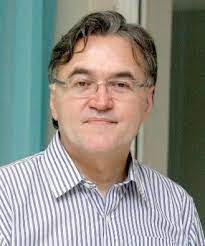
José Nelson Bessa Maia
Holds a Bachelor degree in Economics from the Federal University of Ceará (1982), a Master´s degree in Economics from the University of Brasília (UnB, 1987) and a Doctor´s degree in International Relations from UnB (2012). Among his previous and current assignments: is a federal auditor for finance and controlling at Brazil’s Treasury Department (to be retired next October 2021); director of foreign affairs office of the State of Ceará (1995-2006); Brazil´s official coordinator for preparation of the Brazilian chapter in the BRICS Report, a policy-oriented study of Brazil, Russia, India, China, and South Africa (2012); the Brazilian official representative at the G20 Framework Working Group (2012-2015); senior advisor (2016-2019) at the International Secretariat for International Affairs (SEAIN) of the Ministry of Planning of Brazil. Is now co-ordinator for international financial markets at the Secretariat for International Economic Affairs in the Ministry of Economy of Brazil. Has ten books published in Brazil. His fields of interests: International Relations and Geopolitics; International Economic and Financial Governance; Chinese Studies; and Paradiplomacy.

Maria Luiza Falcão Silva
Holds a degree in Economics from the Federal University of Bahia, a MSc in Economics from the University of Wisconsin-Madison (1979) and a Ph.D. in Economics from the Heriot Watt University. Among her professional activities, the following stand out: director of the Treasury Department of the State of Bahia; head of the Secretariat for Strategic Management at Embrapa; advisor to the Strategic Affairs Center (NAE) of Brazil´s Presidency of the Republic (PR), director of the International area at the Secretariat of the Council of Economic and Social Development (SEDES/CDES) of PR (2009-2014) and director of Educational Studies at the National Institute of Educational Studies and Research Anísio Teixeira (Inep). She has large experience in working with government and civil society in the search for national strategic development alternatives for Brazil. She was professor at the University of Brasília (UnB). Her fields of interest are: International Economics, Monetary and Financial Economics and Economic Development focusing on Brazil, Latin America, Mercosur, regional integration, stabilization programs and sustainable development.
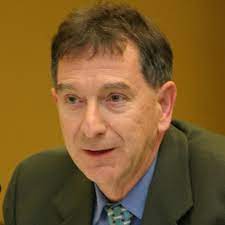
Neantro Saavedra-Rivano
Holds a PhD in Mathematics from the University of Paris, and a PhD. in Economics from the University of Columbia. His professional activities have included teaching and research in universities and other institutions in Brazil, Chile, France, Japan, Korea, Spain, the USA, and Venezuela, as well as consulting with governments and international organizations. He currently is Visiting Professor, University of Brasilia (UnB, Brazil) and Professor Emeritus, University of Tsukuba (Japan). Main research areas: in Mathematics, Algebraic Geometry and Dynamical Systems; in Economics, International Economics, Development Economics, and Mathematical Models. Has several books and articles published on Regional Integration, Development Economics, and Latin America Economy, as well as Mathematical fields. Current research interests include international trade and investment for development; finance of human capital formation; regional development and entrepreneurship.
